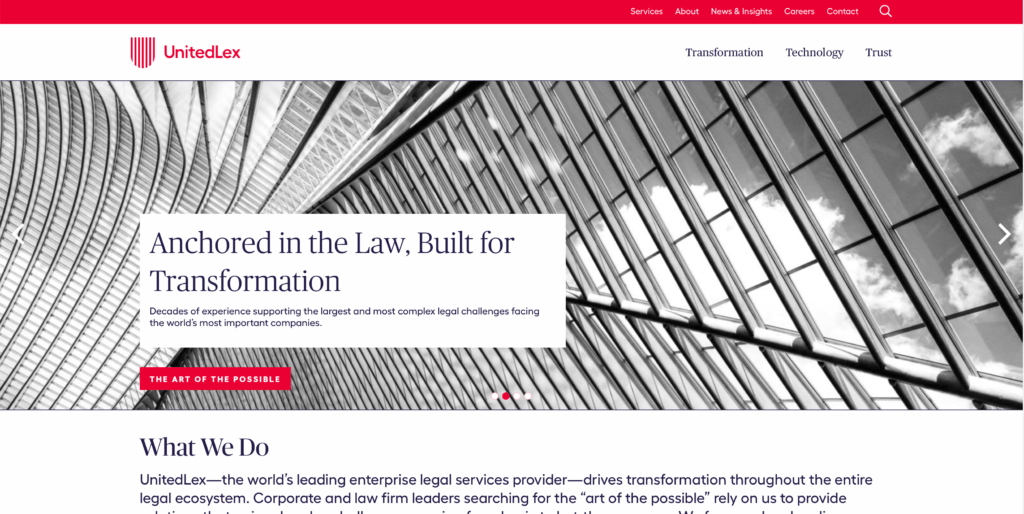Interview by Andrew Wong, Ong Chin Ngee, Lenon Ong | Edited by Josh Lee
TechLaw.Fest 2019 will take place from 5 to 6 September 2019 in Singapore, bringing together the movers and shakers in the space of law and technology. In these few weeks leading up to TechLaw.Fest, the LawTech.Asia team will be bringing you regular interviews and shout-outs covering prominent speakers and the topics they will be speaking at TechLaw.Fest.
This week, LawTech.Asia received the exclusive opportunity to interview William Deckelman, Executive Vice President, General Counsel and Secretary of DXC Technology. William will be kicking off Day 2 of TechLaw.Fest 2019 with a thematic lecture on security and connectivity.
When CSC and HPE Enterprises merged 2 years ago to form DXC Technology, you faced the challenge of integrating two large legal departments. Could you briefly describe your experience and share some of your key takeaways?
We faced the task of merging two legacy organisations that had been around for a long time and had certain ways of doing things, which meant substantial overlap and synergy in the transaction that required significant cost takeout.
At the same time, the IT industry was going through an inflection point – next generation offerings were being offered as opposed to the huge IT outsourcing deals as was the case historically. This meant that the mode of contracting and the types of contract we would be signing were changing to accommodate this new way of providing IT services.
We were caught in a perfect storm of needing to reduce resources, reskill and retrain for new business but at the same time continuing to support the legacy business that meant billions of dollars worth of outsourcing contracts.
At the beginning we tried the traditional ways of keeping work within DXC to see if we can lower the cost through things like offshoring and automation but frankly we just couldn’t get there.
Having been around outsourcing my entire career, it made sense to me to structure a managed services offering from a provider – UnitedLex. This enabled us to immediately bring in capabilities and technology that we did not have, such as a contract management system. We wrapped all that into a managed services arrangement where most of our core contracting resources were deployed to UnitedLex.

The biggest takeaway is to plan ahead and be prepared for the “people” side of the issues.
This could mean managing their attitudes and mindsets, enhancing collaboration and their willingness to work with technology and getting them prepared for change. It is hard to get it right, but if you do not focus on that at the beginning, you will face problems down the line and this could be a roadblock to progress in the long run.
For us, the first couple of years were spent transitioning people and getting stability whilst being able to support the business, before the real transformation work from the third year on. What we were most focused on was how to reduce resources but not impact the business.
In your view, how has the role of the general counsel evolved over the years in light of technological advancements?
Fundamentally some things do not change – general counsels will still need the legal competency and the ability to make good business judgments.
However, the digital era has had a tremendous impact on the role of the general counsel. We are now in a position to be closer to the business and make data-driven decisions. Today, general counsels have access to real-time data to manage resources and to obtain insights on how to manage risks. Whilst the old-fashioned way was to manually track and generate reports, we now have real-time dashboards to see what is going on with a contract and check on the status of a deal. The corollary of this is that general counsels are in a better position to add value to the business.
Since the role of the general counsel is increasingly data-driven, and that the general counsel is able to make data-driven decisions, will the role of the general counsel play a more significant role in making strategic decisions?
Yes I would say so. We have borrowed data from our sister organisations, structured data in a logical manner, and collaborated using the data. Our company has a very strong inclination to go digital, and the synergy from collaborating is so phenomenal. Recently, our organisation went through an assessment of various functions in the company regarding digital readiness, and the legal department actually came on top.
The changing times also affect how the legal team keeps itself updated. There is e-learning and basic legal resources that are available online at low costs. Data is more often than not free. However, the key thing is not the price. What data does to our team is that it makes work so much more efficient and enjoyable since you can make data portable, and data is readily accessible. We are also working to incorporate an automated system, where other departments within the company can obtain services automatically, efficiently, and quickly.
What are the most important characteristics of an in-house counsel say, 15 years down the road?
It is increasingly important for lawyers to not only understand business and legal concepts, but also cross-jurisdictional issues, so that they can better advise the management in future.
There will always be critics of the technology, but one thing is for sure – processing speeds and the rate of uptake of machine learning and artificial intelligence are increasing exponentially. There will always be the need for substantive legal knowledge, principles, and issues. However, the future in-house counsel is going to have to be someone who is very comfortable with technology and some who is able to think outside the traditional legal box.
For example, Singapore is so far ahead compared to the United States. In the United States, law schools here are struggling to keep up with technology. Less than a handful of law schools conduct technology training and business training. The future in-house counsel would need more than just the legal answer. It is going to be radically different, and learning technology and relevant skills can keep people more employable in the changing market.
This may also mean that in the future, the lawyer’s role can be increasingly done by associates in accountancy firms or legal engineers. As lawyers, we make a lot of analysis that can be done by machines. More legal work can be delegated to employees who are neither lawyers nor legally trained. It is important to get familiar with technology, and that does not mean that we have to become experts in coding. In the future, law school and business school graduates who are comfortable with digital research can better contribute and support innovative legal solutions.
While modern technology has enhanced connectivity and facilitated a greater flow of information between such parties, data protection and confidentiality have been key issues in the spotlight as of late. In your view, how relevant are security and confidentiality concerns affecting the uptake of legal technology in in-house legal departments, and how can they be dealt with?
These are huge issues, and this has been recognised by many corporations and entities worldwide. For instance, the European Union’s General Data Protection Regulation (“GDPR”) is the most important change in data privacy regulation in so many years. It is one important piece of regulation that has affected our lives, and many more will definitely follow. All the ideas and innovation is great, and technology advances at the speed of light – so much so that geography and physical distance do not really affect us anymore.
However, different jurisdictions recognise this issue at different speeds. The GDPR came into effect last year. On the other hand, the privacy laws in the United States are relatively sparse. Sensitivity needs to be brought into the American legal departments. When we open portals to our business partners, several questions need to be considered. What data goes through the portal? Who owns the data? There will be a need for a whole new analysis now.
The issue of personal data is another example, but it would be less of an issue for companies’ employees as this issue would be regulated by employment contracts. On the other hand, business data, including intellectual property, is becoming voluminous, and it is imperative to consider how to deal with such privacy issues. We cannot afford not take these privacy issues seriously, both at the front-end and back-end.
We are fortunate to be a company in the technology sector with a core function in technology. As we innovate with technology, we process for security testing. For companies that are not in the technology sector, that brings a lot of risks. Risk not in terms of functionality or connectivity, but rather, cyber risks. A large corporation without technology as its core operation would need a lot of external help.
Could you share some suggestions or tips for in-house legal departments looking to kickstart their digital transformation journey?
This is an interesting question. I get many questions from others that are along the lines of this: “Bill, you had a merger that forced you to take up digital transformation. However, we do not have a merger and we are not pressured by the C-suite. How do we kick-start the process of digital transformation?”
And this is where the general counsel adds value. The general counsel has to have the vision to realise that in our world of technology today, you have to appreciate Moore’s Law. Processing power increases every 2 years, and digital improvement is exponential. If you are not ready for it or if you have not taken that first step, lay out a bold, strategic plan as to where you want the organization to be in 5 years’ time, including talent acquisition and increasing business value – ask yourself why you want a digital transformation. Define what you can do better with data, and ultimately bring better value by using data.
The general counsel has to have the vision to realise that in our world of technology today, you have to appreciate Moore’s Law… If you are not ready for it or if you have not taken that first step, lay out a bold, strategic plan as to where you want the organization to be in 5 years’ time, including talent acquisition and increasing business value – ask yourself why you want a digital transformation.
William deckelman, general counsel and secretary, dxc technology
How do you manage risk more intelligently and effectively? Do you have the time to gather the data and manage these data? If you are a legal organisation and you believe that you do not really need to do that, you will definitely get left behind. This digital transformation journey takes a lot of time; you cannot just snap your fingers and make it happen, and you cannot leap frog in technology and talent acquirement.
What general counsels should do, is to approach your CEO and CFO, and let him or her know that you are taking initiative to value-add to the business. It has always been about this: lawyers think that it is all about themselves – look at how great this memo is, or look at how great this memo is, or this book which I have just published. General counsels need to act and think differently. It is all about adding value to the business.
This piece of content was produced by LawTech.Asia as media partner for TechLaw.Fest 2019.
An event not to be missed! LawTech.Asia readers are entitled to an exclusive promo code that provides a 20% discount off a 2-day pass for TechLaw.Fest 2019. Simply use the promo code “TLFLTA20” when registering for TechLaw.Fest today!
